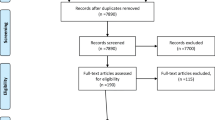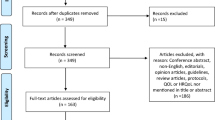Abstract
Background
The placebo and the placebo effect are often investigated in the context of clinical trials. Little data exist on the use of placebos in the course of routine health care.
Objective
The aim of this study is to describe a group of academic physicians’ use of placebos and their knowledge, attitudes, and beliefs about placebos and the placebo effect.
Design
A 16-question anonymous web-based survey of physicians from Internal Medicine departments of 3 Chicago-area medical schools was used.
Results
There were 231/466 (50%) physicians who responded; of these, 45% reported they had used a placebo in clinical practice. The most common reasons for placebo use were to calm the patient and as supplemental treatment. Physicians did not widely agree on the definition of a placebo and had a variety of explanations for its mechanism of action. Ninety-six percent of the respondents believed that placebos can have therapeutic effects, and up to 40% of the physicians reported that placebos could benefit patients physiologically for certain health problems. Only 12% of the respondents said that placebo use in routine medical care should be categorically prohibited. Regarding “placebo-like” treatment, 48% of respondents reported giving at least 1 type of treatment in a situation where there was no evidence of clinical efficacy.
Conclusion
Nearly half of the respondents use placebos in clinical practice and most believe in the mind–body connection. The results of this study, based on retrospective self-reported behavior, are subject to recall bias and may not be representative of American physicians.

Similar content being viewed by others
References
Benedetti F, Amanzio M. The neurobiology of placebo analgesia: from endogenous opioids to cholecystokinin. Prog Neurobiol. 1997;52(2):109–25.
Benson H. Timeless healing: the power and biology of belief. New York: Simon and Schuster; 1996.
Berger JT. Placebo medication use in patient care: a survey of medical interns. West J Med. 1999;170:93–6.
Brody H. Placebos and the philosophy of medicine. Chicago: University of Chicago Press; 1980.
Ernst E, Abbot NC. Placebos in clinical practice: results of a survey of nurses. Perfusion. 1997;10:128–30.
Goldberg RJ, Leigh H, Quinlan D. The current status of placebo in hospital practice. Gen Hosp Psych. 1979;1(3):196–201.
Goodwin JS, Goodwin JM, Vogel AV. Knowledge and use of placebos by house officers and nurses. Ann Intern Med. 1979;91(1):106–10.
Gray G, Flynn P. A survey of placebo use in a general hospital. Gen Hosp Psych. 1981;3(3):199–203.
Bok S. Ethical issues in use of placebo in medical practice and clinical trials. In: Guess HA, Kleinman A, Kusek JW, Engel LW, eds. The science of the placebo: toward an interdisciplinary research agenda. London: BMG Books; 2002, pp. 53–74.
Harrington A. “Seeing” the placebo effect: historical legacies and present opportunities. In: Guess HA, Kleinman A, Kusek JW, Engel LW, eds. The science of the placebo: toward an interdisciplinary research agenda. London: BMJ Books; 2002:35–53.
Hofling CK. The place of placebos in medical practice. GP. 1955;11(6):103–7.
Hrobjartsson A, Gotzsche PC. Is the placebo powerless? An analysis of clinical trials comparing placebo with no treatment. N Engl J Med. 2001;344(21):1594–602.
Hrobjartsson A, Norup M. The use of placebo interventions in medical practice—a national questionnaire survey of Danish clinicians. Eval Health Prof. 2003;26(2):153–65.
Moerman D. Explanatory mechanisms for placebo effects: cultural influences and the meaning response. In: Guess HA, Kleinman A, Kusek JW, Engel LW, eds. The science of the placebo: toward an interdisciplinary research agenda. London: BMJ Books; 2002:77–108.
Moerman D, Jonas W. Deconstructing the placebo effect and finding the meaning response. Ann Intern Med. 2002;136(6):471–7.
Nitzan U, Lichtenberg P. Questionnaire survey on use of placebo. Br Med J. 2004;329(7472):944–6.
Perseus web-based survey solutions. Available at http://www.perseus.com.
Further READING
Brown WA. The placebo effect. Sci Am. 1998;278:68–73.
Harrington A, eds. The placebo effect: an interdisciplinary exploration. Cambridge: Harvard University Press; 1997.
Kendler KS. A psychiatric dialogue on the mind–body problem. Journal of American Psychiatry. 2001;158(7):989–1000.
Lynoe N, Mattsson B, Sandlund M. The attitudes of patients and physicians towards placebo treatment—a comparative study. Soc Sci Med. 1993;36(6):767–74.
Shapiro AK, Struening EL. The use of placebos: A study of ethics and physician attitudes. Psychiatr Med. 1973;4:17–29.
Thomson RJ, Buchanan WJ. Placebos and general practice: attitudes to, and the use of, the placebo effect. NZ Med J. 1982;95(712):492–4.
Acknowledgment
Many thanks to Sinan Kermen, Sandy Cook, Sandy Smith, and Jamie Cohen-Cole for their support.
Conflict of Interest
None disclosed.
Author information
Authors and Affiliations
Corresponding author
Rights and permissions
About this article
Cite this article
Sherman, R., Hickner, J. Academic Physicians Use Placebos in Clinical Practice and Believe in the Mind–Body Connection. J GEN INTERN MED 23, 7–10 (2008). https://doi.org/10.1007/s11606-007-0332-z
Received:
Revised:
Accepted:
Published:
Issue Date:
DOI: https://doi.org/10.1007/s11606-007-0332-z




